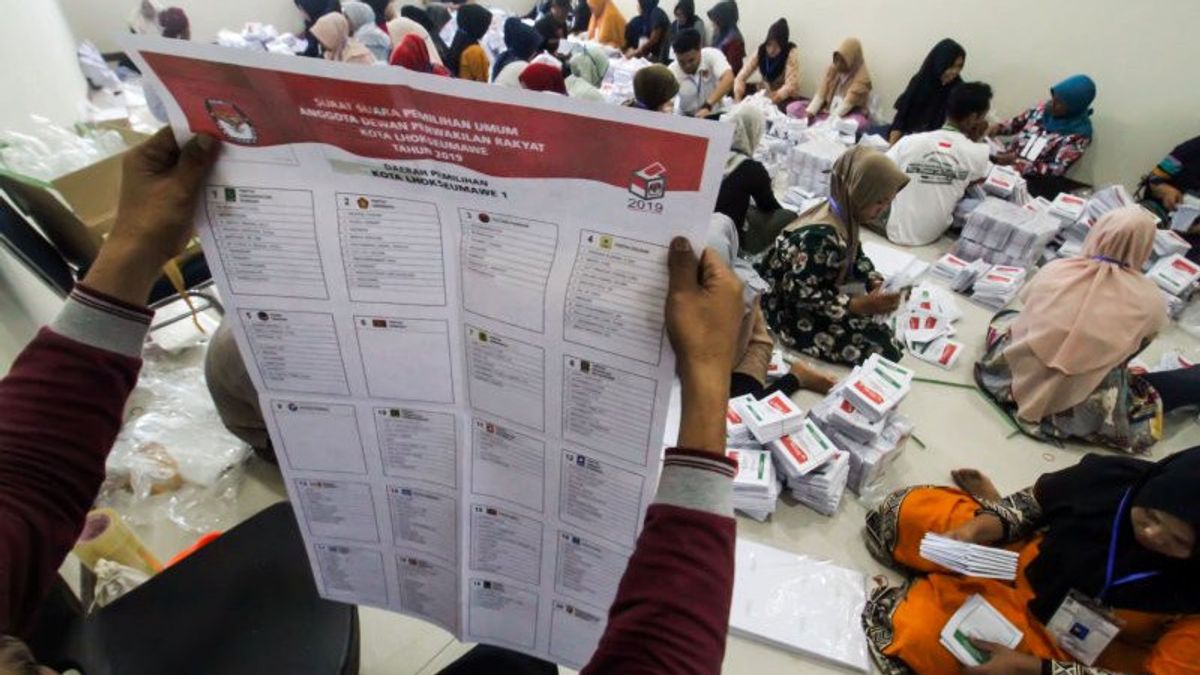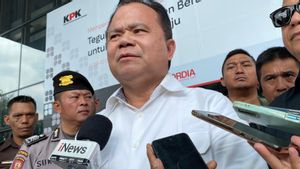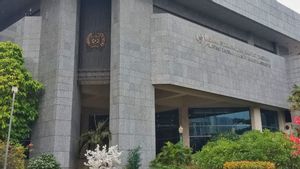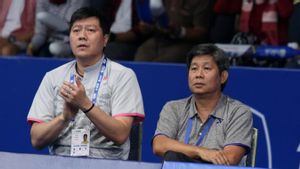JAKARTA - The Association for Elections and Democracy (Perludem) considers Article 182 letter g of Law Number 7 of 2017 concerning Elections, which regulates the clause on the conditions for ex-convicts to run as candidates for election participants, contrary to the 1945 Constitution of the Republic of Indonesia.
"We consider that the provisions of Article 182 letter g contradict Article 1 Paragraph (2), Paragraph (3), and Article 22 E Paragraph (1) and Article 28 D Paragraph (1) of the 1945 Constitution," said Fadli Ramadhanil as Perludem's attorney as case applicant Number 12/PUU-XXI/2023 which was held at the Constitutional Court (MK), Jakarta, Monday 6 February, was confiscated by Antara.
Article 182 letter g states that one of the requirements as an election participant is that he has never been sentenced to prison based on a court decision.
"The individual as referred to in Article 181 can become an Election Participants after fulfilling the requirements: g. has never been sentenced to prison based on a court decision that has obtained permanent legal force for committing a criminal act that is threatened with imprisonment of five years or more, except openly and honestly state to the public that the person concerned is a former convict," reads Article 182 letter g of the Election Law.
In front of the panel of judges, Fadli also explained the four basis arguments related to the case being filed.
First about political contestation and massive money politics. After the reform and four amendments to the 1945 Constitution, according to him, the Indonesian people agreed and committed to holding elections to be carried out democratically according to the principles of direct, general, free, secret, honest, and fair or Luber Jurdil.
However, he said, on its way, the holding of elections was not completely free from corrupt practices. This is evidenced by data from the Corruption Eradication Commission (KPK) in 2018 which revealed that political officials or officials who were democratically elected were the highest number of parties involved in corruption cases.
"One of the causes of political officials being entangled in corruption is the high political costs that must be served by election participants," explained Fadli.
On that basis, he considered the importance of a legal framework that opens up space and opportunity so that prospective election participants are people with good integrity.
The second argument, he continued, was related to the testing of the articles being sued, namely regarding the importance of candidate requirements for candidates for candidates for members of the Regional Representative Council (DPD) and the vulnerability of DPD members trapped in corrupt practices.
Third, he conveyed the rationalization of the waiting period of the former convict. The petitioner considers the waiting period important to pay attention to in order to provide a deterrent effect as well as a deterrent to political officials who are elected in the election process to be careful and no longer carry out corrupt practices.
Fourth, Fadli conveyed related to the attitude of the Constitutional Court in several decisions related to the requirements for nominating election participants.
Court of Case Number 12/PUU-XXI/2023 was led directly by Constitutional Court Judge Saldi Isra with their respective member judges Suhartoyo and Wahiduddin Adams.
The English, Chinese, Japanese, Arabic, and French versions are automatically generated by the AI. So there may still be inaccuracies in translating, please always see Indonesian as our main language. (system supported by DigitalSiber.id)













